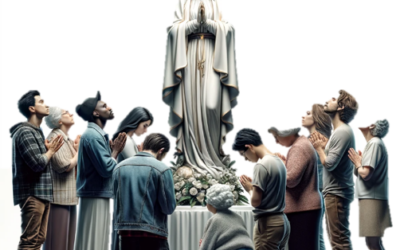The religion of Islam is not compatible with the Constitution and Bill of Rights of the United States. Islam teaches adherence to Sharia Law which is intended to be a complete guide for all areas of society including judges, lawyers, educators, government officials, the entertainment industries, families, and religious institutions. It would replace the Constitution. The president of the United States is sworn to uphold the Constitution, but a true Muslim could not do that and also hold to Sharia Law which is what Muslims are obligated to uphold since they follow the Quran.
I would like to note that Sharia Law really only works under a Muslim society. When Muslims are in countries that are not dominated by Islam, then they hold to the laws of the land. But, as Muslims increase in they gain power, they push for Sharia Law. This means that a Muslim is obligated to follow the Quran above the Constitution. Could such a Muslim be President?
Following are some of the teachings of Sharia Law that are incompatible with the United States Constitution and Bill of Rights.
Would Sharia Law Let a Muslim be President?
- Those who leave Islam are to be killed.1
- Criticizing the Quran and/or Mohammed is punishable by death.
- A Muslim who becomes a Christian can be killed.
- A Christian who converts a Muslim to Christianity can be killed.
- A Non-Muslim may not display wine or pork, openly recite their Scriptures, or celebrate their religious holidays.
- A Muslim cannot receive the death penalty for killing a non-Muslim.
- Christians may not repair or build churches.
- Non-Muslims do not have equal rank, status, or authority as Muslims in society.
- Testimony from low ranking people is not permissible in Islamic court.
- The testimony of a woman is half the value of a man’s testimony in court.
- For a woman to prove rape, she must have four male witnesses.
- There is no minimum age limit for how old a girl must be to marry a Muslim man.
- Slavery is permitted.
- Muslims may engage in Taqiyya which is lying to non-Muslims to advance Islam.
Obviously, many of the laws of Sharia (only some are listed here) are not compatible with the U.S. Bill of Rights which are listed below. This conflict has a direct bearing on whether or not we could have a Muslim be President:
- First Amendment Congress shall make no law respecting an establishment of religion, or prohibiting the free exercise thereof; or abridging the freedom of speech, or of the press, or the right of the people peaceably to assemble, and to petition the Government for a redress of grievances.
- Second Amendment A well regulated Militia, being necessary to the security of a free State, the right of the people to keep and bear Arms, shall not be infringed.
- Third Amendment No Soldier shall, in time of peace be quartered in any house, without the consent of the Owner; nor in time of war, but in a manner to be prescribed by law.
- Fourth Amendment The right of the people to be secure in their persons, houses, papers, and effects, against unreasonable searches and seizures, shall not be violated, and no Warrants shall issue, but upon probable cause, supported by Oath or affirmation, and particularly describing the place to be searched, and the persons or things to be seized.
- Fifth Amendment No person shall be held to answer for a capital, or otherwise infamous crime, unless on a presentment or indictment of a Grand Jury, except in cases arising in the land or naval forces, or in the Militia, when in actual service in time of war or public danger; nor shall any person be subject for the same offense to be twice put in jeopardy of life or limb; nor shall be compelled in any criminal case to be a witness against himself; nor be deprived of life, liberty, or property, without due process of law; nor shall private property be taken for public use without just compensation.
- Sixth Amendment In all criminal prosecutions, the accused shall enjoy the right to a speedy and public trial, by an impartial jury of the State and district wherein the crime shall have been committed; which district shall have been previously ascertained by law, and to be informed of the nature and cause of the accusation; to be confronted with the witnesses against him; to have compulsory process for obtaining witnesses in his favor; and to have the assistance of counsel for his defense.
- Seventh Amendment In Suits at common law, where the value in controversy shall exceed twenty dollars, the right of trial by jury shall be preserved, and no fact tried by a jury shall be otherwise reexamined in any Court of the United States, than according to the rules of common law.
- Eighth Amendment Excessive bail shall not be required, nor excessive fines imposed, nor cruel and unusual punishments inflicted.
- Ninth Amendment The enumeration in the Constitution of certain rights shall not be construed to deny or disparage others retained by the people.
- Tenth Amendment The powers not delegated to the United States by the Constitution, nor prohibited by it to the States, are reserved to the States respectively, or to the people.
So, in light of what is advocated in Sharia Law, how is it possible that anyone who would claim to be a devout Muslim could also swear to follow the Constitution? He could not. Indeed, Sharia would not allow the Muslim to take the oath of office, which requires him to uphold the constitution.
This is why a true Muslim should not be president of the United States. The oath and intent of the office make it impossible for us to have a consistent Muslim be President.
References
| 1↑ | These laws are adapted from http://www.wnd.com/2010/08/196041/ |
|---|





